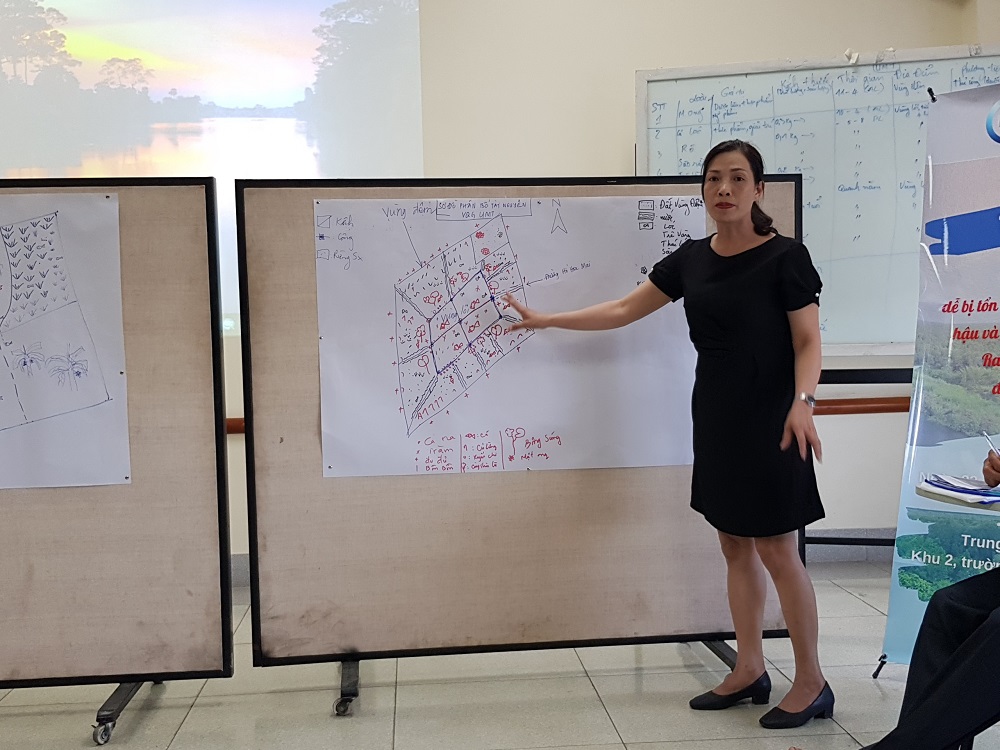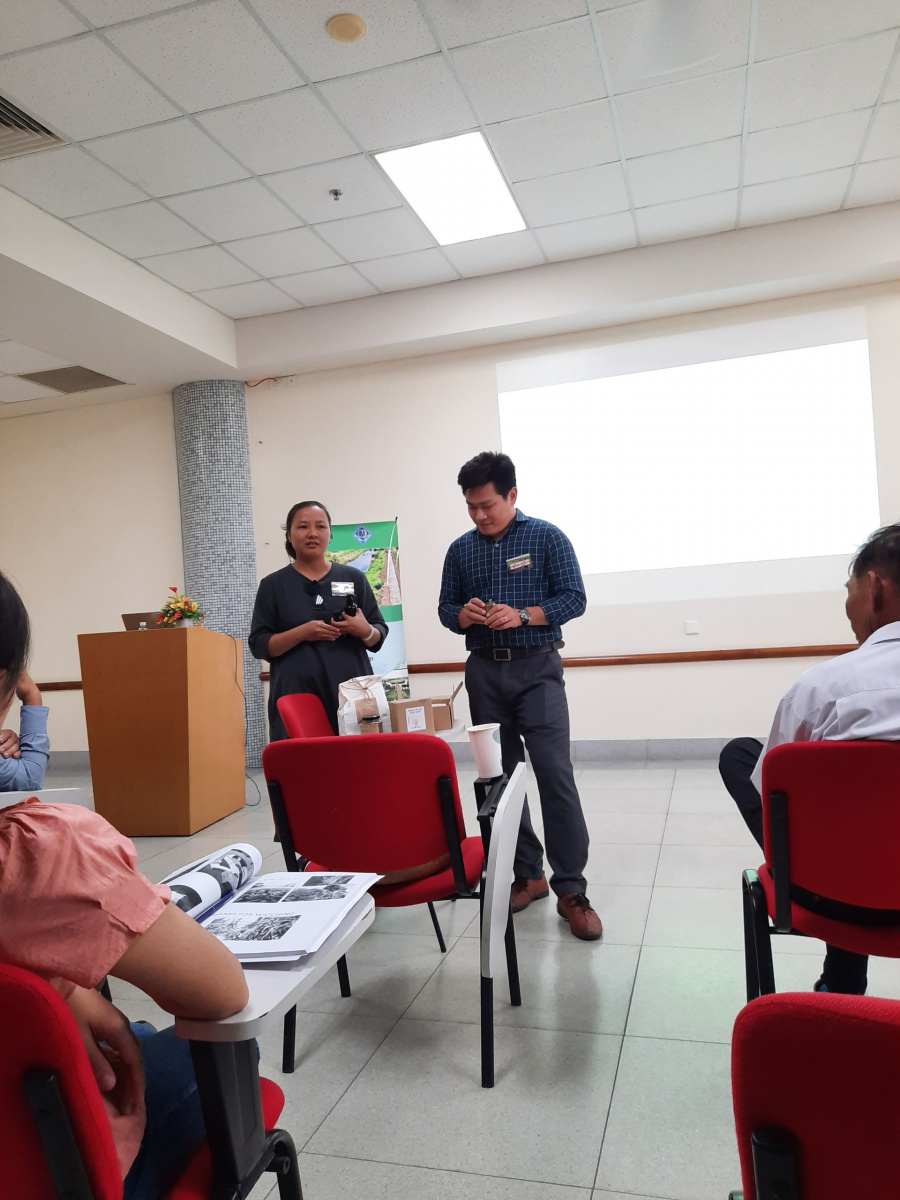Developing the ‘Ramsar Label’ – adding value to wetland products, and increasing local resilience
With the goal of elevating the market value of wetland products and encouraging the protection of wetland ecosystems, researchers from Can Tho University, in collaboration with the staff of U Minh Thuong National Park and Ramsar Site, organised training on developing a certification for wetland agricultural products from 23 to 27 March 2021. The aim is to develop a ‘Ramsar label’, which will serve as a brand to promote farmers’ products from the wetlands. The scheme will ensure premium prices for the products, connecting farmers to consumers and the ecotourism markets. Examples of potential products include honey, herbs, fruits, fish, and vegetables. The initiative will also encourage farmers, who live in the site’s buffer zones, to develop and promote local products with a limited negative impact on the Ramsar site, a Wetland of International Importance.
Supported by a small grant from the Mekong WET project, the five-day training programme aimed to support the development of a Ramsar Label for wetland-friendly products. The training was led by Can Tho University and attended by 19 participants including community members, government staff, young researchers, television reporters, NGOs and young entrepreneurs. The project plans to certify the products of 30 local farmers living in the buffer zone.
During the training, Ms. Truong Be Diem, an ecotourism officer at U Minh Thuong National Park, presented the resources of the reserve, including medicinal plants, fish and honeybees. “Developing a Ramsar Label, for locally-made products from the reserve, will emphasise the benefits for the Ramsar Site, as well as for communities living in the buffer zone and increase the income for local communities,” said Ms. Diem.
The proposed model aims to attract attention to the products, certifying them as unique local wetland products. According to Ms. Diem, at present, there are various haphazardly developed models in the buffer zone community, which are not fully integrated with each other.
The Ramsar Label is anticipated to increase appreciation and add value to the site, with the certified products raising awareness of wetland resources and local culture. It will also strengthen the relationships between the park management and the local community, with the initiative benefitting tourists who visit the site. Each Ramsar product will have a unique QR code, allowing consumers to gain an understanding of where the product came from and how it was made. “Up until this point, the assessment and certification processes have been quite complicated and require significant resources. Therefore, it has been difficult for small-scale producers and the national park to receive certification. The proposed new assessment process is simple, and easy to apply; therefore, it is suitable for our site,” said Ms. Diem.
During the training, Le Pham Tuong Anh, a female entrepreneur, who sells herbal essential oils, candles, and toothpaste, expressed interest in joining the certification process. “The certification aims to provide an opportunity for the local community to diversify their farming models, increase the number of featured products with high value from the wetland,” said Ms Tuong Anh.
Researchers at Can Tho University hope that by increasing local community incomes, there will be a decrease in illegal exploitation within the core zone of the wetland.
The Mekong WET Small Grants fund several wetlands projects in the Indo-Burma region. These initiatives are directly answering specific climate threats to wetland ecosystems, species, and communities using Ecosystem-based Adaptation strategies as the main approach.
_____________________
About MWET
Funded by the International Climate Initiative (IKI) of the German Federal Ministry for the Environment, Nature Conservation, Building and Nuclear Safety (BMUB), the “Mekong WET: Building Resilience of Wetlands in the Lower Mekong Region” project aims to build climate resilience by harnessing the benefits of wetlands in Cambodia, Lao PDR, Thailand, and Viet Nam. Mekong WET helps the four countries to address their commitments to the Ramsar Convention, an international treaty for the conservation and sustainable use of wetlands, and to achieve the Aichi Biodiversity Targets.
About IBRRI
The Indo-Burma Ramsar Regional Initiative (IBRRI) was jointly developed by the Ramsar National Focal Points of the five countries (Cambodia, Lao PDR, Myanmar, Thailand, and Viet Nam), and IUCN’s Asia Regional Office, based on specific needs identified in these countries. It was endorsed by the 52nd meeting of the Ramsar Convention Standing Committee in June 2016. The IBRRI aims to support the coordinated implementation of the objectives of the Strategic Plan of the Ramsar Convention. IUCN acts as the Secretariat for the Initiative under the leadership of the Steering Committee, which includes representatives from the five governments and the Ramsar Convention Secretariat as an observer.






